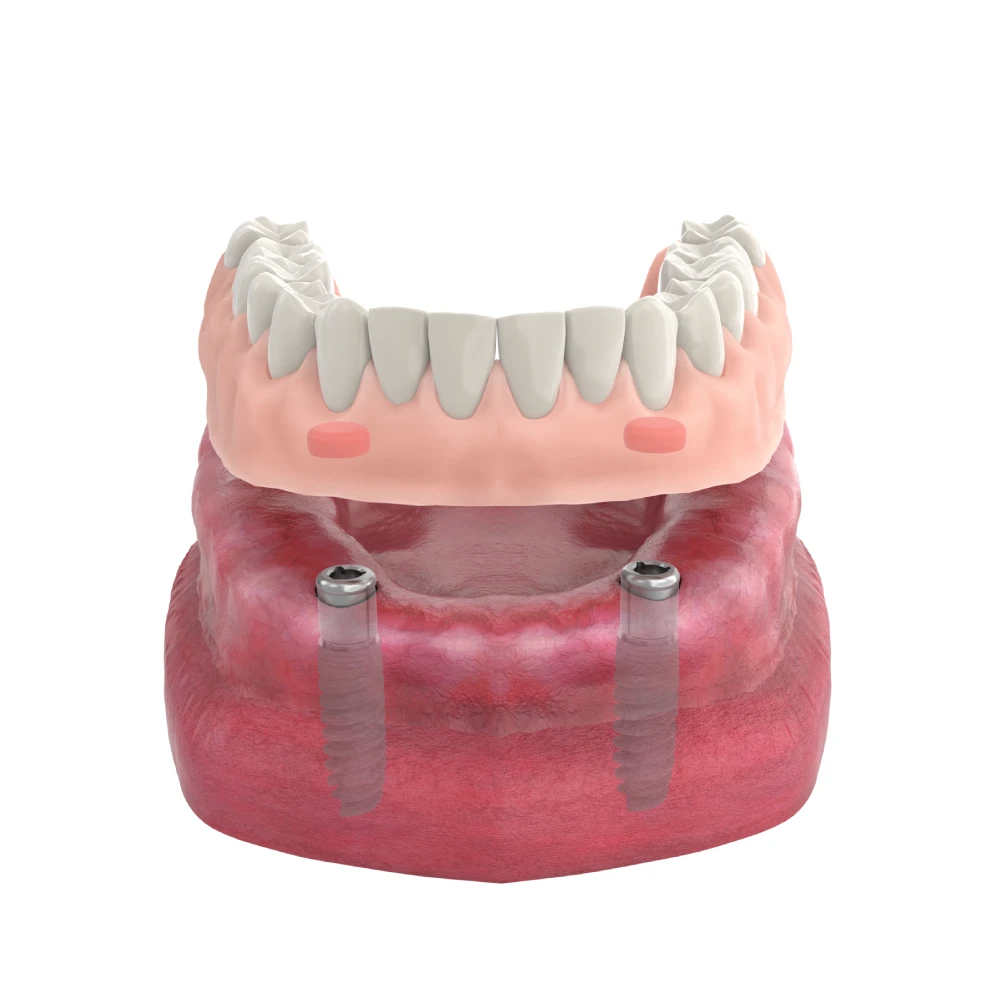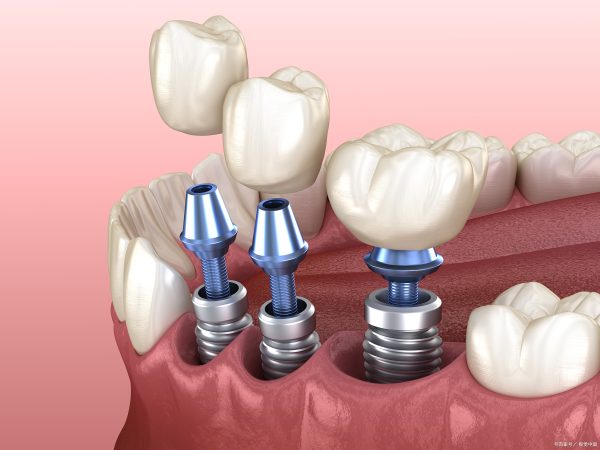When confronted with tooth loss, not every patient would hurry to have dental implants straight immediately; others may wait years. One often asked issue in this regard is: Is it too late to receive dental implants? In summary, there are a lot of things to think about before obtaining dental implants, although in theory there is never a “too late” time.
Concerning “when is it too late” to obtain dental implants, don’t worry. Implants for teeth are a somewhat versatile choice. On the other hand, the amount of time you have been toothless might influence how you get ready for therapy. The body naturally starts to take minerals from the jawbone for future use after a tooth is extracted. Long-term tooth loss results in a steady shrinkage of the jawbone, albeit this process is modest. The loss of jawbone may become so bad over years, even a decade, that it becomes hard to get a denture to fit properly. This alteration may be the underlying reason of present dentures that are unpleasant or challenging to fit, in addition to being a signpost for the loss of face shape.
One cutting-edge method of oral repair is dental implants. The main component of the technique is the creation of dental implants, or prosthetic tooth roots, using a unique synthetic substance called titanium. The goal of this precision surgical procedure is to implant a titanium tooth root into the patient’s jawbone, mimicking the root structure of a normal tooth and providing stability and a strong base for a future tooth restoration. This procedure is often called “dental implants” with powerful expression.
Professional dentists will custom-install one or more replacement teeth once the implant has been properly integrated and stabilized in the jawbone. In order to provide a genuine aesthetic result, these replacement teeth are not only matched to the patient’s original teeth in every way, but they are also created to feel as natural as possible to the touch, restoring the implants’ high level of functionality and aesthetic appeal.

What are dental implants?
Dental implants are now the treatment of choice for many patients who are missing teeth, not only because they can mimic the look and feel of real teeth, but also because they provide many important durability benefits. Dental implants may provide patients with stable, long-lasting oral health and an enhanced quality of life for up to 15 years, provided they are properly maintained and utilized under the supervision of dentists.
Can you get dental implants years after having a tooth extracted?
While the majority of dentists advise replacing missing teeth as soon as feasible, some patients decide—for private or budgetary reasons—to put off thinking about dental implants until years following tooth extraction. This kind of wait is not unusual.
But if you do decide to go ahead and have dental implants, you could find out about some of the drawbacks of putting off treating your tooth loss for so long. Dental implants may theoretically be placed years after tooth extraction, however there can be some difficulties.
When is it too late to insert dental implants, then? Put another way, waiting too long to replace your teeth might lead to certain circumstances that make the treatment less appropriate.
Is it too late to get dental implants?
It’s never too late to use dental implants to makeover your smile.
For many individuals who previously believed they were not candidates for this cutting-edge tooth replacement, dental implants are now a realistic alternative because to the unparalleled opportunities provided by modern dental technology. Dental implants are a fantastic tooth replacement solution that come with a host of advantages to help you get your gorgeous smile back.
But there are a few important things that should be discussed together before starting the dental implant process, such as but not limited to:
- Bone health: The effectiveness of dental implants depends critically on the density and condition of the mandible.
- Age: Although there isn’t a set maximum age for dental implants, age should be taken into account to make sure the patient is physically capable of having the surgery.
- General health: The efficacy and safety of dental implants may be impacted by some long-term illnesses, including as diabetes or heart disease.
- Advanced gum disease: Dental implants may not work as well if gum disease is not appropriately addressed.
- Long-term tooth loss: Losing teeth over an extended period of time may reduce the jawbone, which makes implanting dental implants more challenging.
- Drinking and smoking: These unhealthy behaviors might hasten the healing process and raise the procedure’s hazards.
- Oral hygiene: Maintaining good dental implant health requires consistent oral hygiene practices.
- Use of medications: Some drugs have the potential to impede bone mending or raise the risk of bleeding.
- Bruxism: Grinding your teeth a lot might harm dental implants.
- Genetic factors: The success rate of dental implants might be impacted by genetic predispositions that alter bone density and structure.
Potential complications of delayed implant treatment
- One issue that is directly linked to tooth loss is bone loss. Approximately two-thirds of the related hard and soft tissues will resorb to variable degrees within the first three months after tooth extraction. More concerningly, the majority of bone loss happens six months after surgery. Delaying tooth replacement will result in less bone available to put the implant post, or artificial tooth root, which will give less support for the crown, the next replacement tooth, due to the cumulative impact of this bone loss. The implant operation will have a much lower success rate if the jawbone’s capacity to sustain the implant’s solid connection is compromised.
- Apart from bone loss, a significant problem that might result from postponing implant therapy is jawbone shrinking. Sustained gum health is necessary for the proper implantation of dental implants. On the other hand, the gum tissue may have receded if a significant period of time has elapsed after the tooth extraction, making quick implant surgery less likely.
- Furthermore, when a tooth is lost, other teeth may shift into the empty area, which might lead to issues with dental alignment. A patient may find that the area left by the extraction is too small to fit the implant if they want to get one later on in life owing to neighboring teeth moving.
When Is the Right Time for Dental Implants?
In order to appropriately assess your suitability for dental implants, we go through a number of meticulous and deliberate steps:
- First, a kind and considerate consultation marks the start of our adventure. We want to fully understand your unique requirements, expectations, and any issues or concerns you may have during this session. We can establish a strong basis for treatment planning by having an honest and thorough discussion that allows us to fully comprehend your circumstances.
- After that, we will set up a time for you to have a thorough and in-depth oral health checkup. A comprehensive evaluation of your oral environment, including the condition of your teeth, gums, and surrounding soft tissues, will be done during this session. Our goal is to make sure you get a gentle, professional, and pleasant inspection.
- We will make use of cutting-edge imaging technologies to get a more thorough grasp of your oral anatomy. These technologies, including 3D CT scans, may provide us comprehensive details on the composition, density, and possible issues of your bone. This data is necessary to create a precise dental implant plan that will guarantee the procedure’s efficacy and success.
In your first visit with a skilled dental implant expert, you will be provided with a comprehensive decision-making guide to help you evaluate dental implants as a potential tooth replacement. Your expert will thoroughly assess a number of variables, balance the benefits and drawbacks, and create a customized treatment plan to suit your specific requirements. Certain situations may need preoperative treatments like sinus lifts or bone grafts in order to restore the structure of the jaw and guarantee the stability of the implant. Orthodontic therapy may also be taken into consideration in order to realign teeth and fill gaps if there are any. Nevertheless, the total cost of the implant process is often raised by these extra therapies.
Nevertheless, not every dental implant choice is heavily reliant on bone health. The following implant technology choices don’t need a complicated pre-treatment to think about:
- With the revolutionary Full Four Implant Technology, a hybrid denture may be securely supported by only four implants across the whole dental arch. On the day of the surgery, you may leave the clinic with a temporary complete mouth of teeth and return a few months later for permanent dentures, even if the treatment process involves numerous appointments for planning.
- Dental implants positioned in the zygomatic bone, or cheek bone, a region often unaffected by bone loss, are called zygomatic implants. This is in contrast to standard implants. Your thorough comprehension of this technology is worthwhile due to its distinct benefits.
- Subperiosteal Implants: Subperiosteal implants provide an option for patients whose bone health is insufficient to sustain traditional implants. Instead of being inserted straight into the jawbone, they are positioned as a component of a metal framework above the bone and behind the gum line. Patients with poor bone conditions now have fresh hope, despite the somewhat demanding nature of this sort of operation and the potential length of recuperation.
Every choice has special requirements and benefits of its own. You and your doctor must discuss all options in detail based on your unique circumstances before deciding on the course of therapy that will work best for you.




